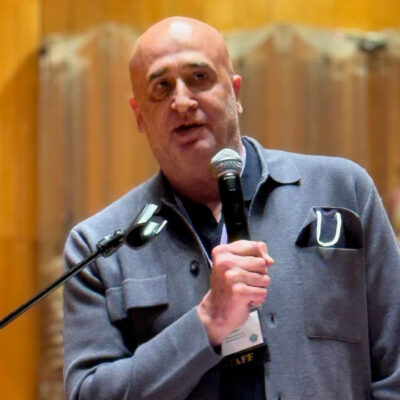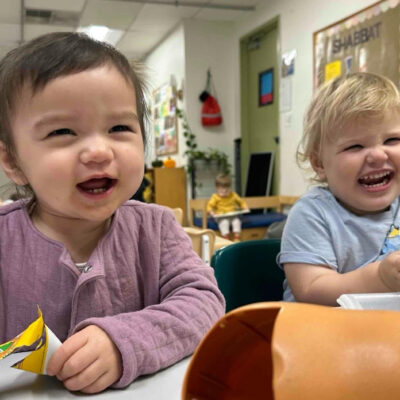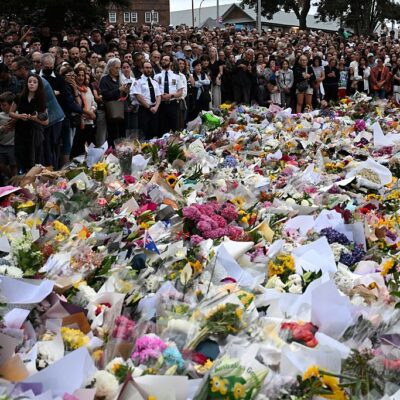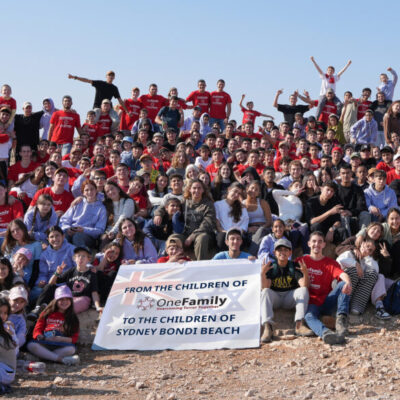Opinion
The Torah of SRE: Modeling our values through Jewish wisdom
As the High Holy Day season approaches, this time of cheshbon hanefesh (soul accounting) calls on us to pause and ask the hardest of questions: Have we lived up to our values? Where have we fallen short? What will it take to do better in the year ahead? How can we hold ourselves accountable in our journey of growth? This sacred process asks each of us to reflect with humility and honesty.
The same is true for organizations. We have found that if we, as professionals or lay-leaders, are to move our missions forward with integrity, our institutions must also embrace this practice of cheshbon hanefesh with curiosity, courage and willingness to grow. It is with this conviction that we created the Torah of SRE, a new source sheet from SRE Network that grounds our values of inclusion and belonging in the wisdom of Jewish text.
A few months ago, SRE Network’s team realized that something was missing: While our resources and website were clear on the values that drive our work, they lacked the explicit Jewish language and grounding foundation that could deepen and enrich our mission. We knew that safety, respect and equity are fundamentally Jewish values, but somehow the Jewish language used to talk about these values was yet to be named. So we asked ourselves: If we are asking the Jewish community to live by these values, how are we rooting our own work in Jewish values?
In this spirit of reflection, SRE’s executive director, Rachel Gildiner, asked us both to partner together in this work. SRE looked to The Jewish Education Project because of their commitment to helping Jewish educators and Jewish professionals ground their work and educational methodology in primary Jewish texts through the Deep Rich Jewish Content Toolkit.
Bringing together TJEP’s senior scholar and educator in residence with SRE’s senior advisor on research and learning was a match made in Heaven (or in Torah). The two of us spent the next several months creating the foundational thinking for the Torah of SRE. Our goal was to ground the values of safety, respect and equity in classic Jewish texts, as well as modern Jewish voices.
We began with studying and asking big questions. How can Jewish wisdom make our organizational values and work more resonant? Which texts could be a springboard for justice, kindness, humility and equity in our work?
Then, we chose a central text that encapsulates these concepts and allows us to think more deeply about them:
“You have been told, Human being, what is good, and what God seeks from you: Only to do justice, and to love kindness, and to walk humbly with your God” (Micah 6:8).
This verse is hardly a revolutionary choice for a justice-focused organization. In fact, it is widely known and often used in justice circles, as it truly speaks to the basic behaviors necessary to be a good person. However, we wanted to show how, instead of simply quoting this text, we could dive deeply into every section of the verse and ask challenging questions. For example, is there actually a place for humility in justice work? What is the relationship between justice and kindness? Can these two values work together or are they fundamentally at odds?
We also confronted a challenge that often arises with God-language. Would these texts resonate with people who have different beliefs about God? We added a “God disclaimer” to openly acknowledge that not everyone believes in the concept of God, and that those who do have radically different understandings of the Divine; at the same time, we retained the God-language, because it serves as a powerful shorthand for envisioning a world where every person’s dignity is seen and valued. We learned that with this clarification, people could talk about God without feeling threatened, ashamed or pressured to believe any specific thing.
Finally, it was incredibly important to us to offer both classic commentaries on this verse, as well as contemporary voices that represent the diversity of the Jewish community. We centered the voices and interpretations of women, and of Jews of Color, Jews who identify as LGBTQ+ and Jews of Sephardi/Mizrachi heritage. We included voices that are too often marginalized in the Jewish textual conversation. In doing so, we modeled a profound truth: Torah and Jewish text can be defined broadly, and should be placed into the hands of everyone within our community.
We then translated all of these insights into a resource complete with traditional and modern sources, discussion questions and chevruta (paired learning) learning guides — with support.
We began by sharing the materials with our staff, who brought diverse backgrounds and relationships with Jewish texts. Their feedback sharpened the clarity and accessibility of the project. Then, we turned outward: to our stakeholders, to rabbis, educators and Jewish leaders across the denominational spectrum. They reminded us that Jewish learning should not only provoke thought, but inspire lived action.
Finally, we shared the working Torah of SRE with a self-selected group of workshop participants at the 2025 Jewish Belonging Summit. The feedback from participants affirmed the reflective impact that this sourcesheet can inspire. Some shared how meaningful and beautifully designed they found the resource, expressing gratitude for its thoughtfulness and execution. Others highlighted how powerful it was to see women’s voices treated as central authorities in the text sheet. Participants described the materials as engaging, accessible and inviting, sparking their eagerness to dive into the learning.
This project confirmed what we had intuited: The Jewish community wants depth, meaning and Jewish wisdom; and they are eager to engage primary texts, even the challenging ones, when the learning environment is inclusive and transparent.
It also reminded us that partnership is critical. Two organizations, each with distinct missions, came together not in competition but in collaboration. Two scholars with different expertise shaped something neither could have created alone. This, too, was a feminist model of leadership: curiosity, openness and shared vision in action.
As each of us prepares for the High Holy Days, we hope the Torah of SRE reminds us that cheshbon hanefesh is not just an individual practice. Communities and organizations, too, must be willing to reflect, admit where something is missing and turn to trusted partners to grow. We invite you to delve into this source sheet with us at ”From Reflection to Renewal: A Torah of SRE High Holiday Learning Session” on Sept. 18 from 1 p.m. ET/10 a.m. PT on Zoom.
When we root our work in our Jewish texts as well as our Jewish identity, we strengthen not only our organizations, but our collective capacity to create a Jewish communal landscape — and a world — that is safe, respectful and equitable for all. Shana Tova!
Rabba Yaffa Epstein is the senior scholar and educator in residence at The Jewish Education Project.
Guila Benchimol is the senior advisor on research and learning at SRE Network.

 Add EJP on Google
Add EJP on Google










